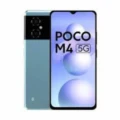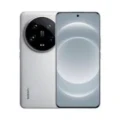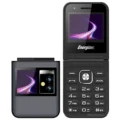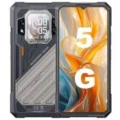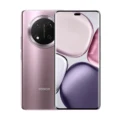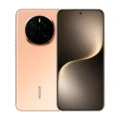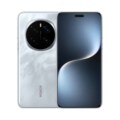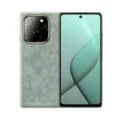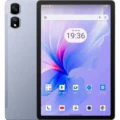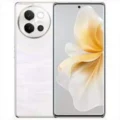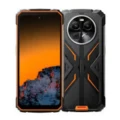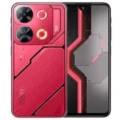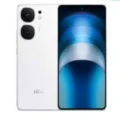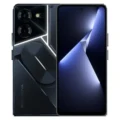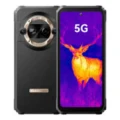Xiaomi Redmi Note 9S
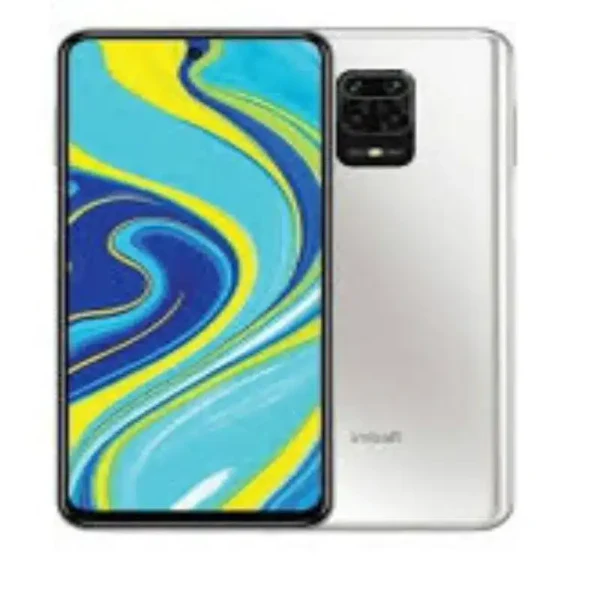

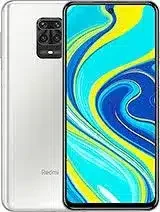
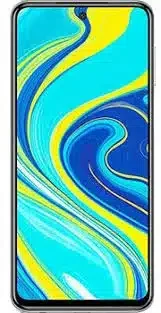

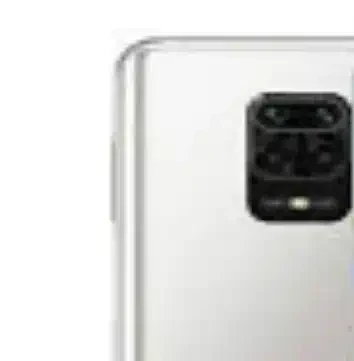
- : 4/6GB RAM Snapdragon 720G
- : 6.67" 1080x2400 pixels
- : 5020mAh 18W
- : 48MP 2160p
The Redmi Note 9S boasts a quad-camera system on the rear, featuring a high-resolution 48MP main sensor that lets you capture crisp and detailed photos. Whether you’re snapping landscapes, portraits, or close-ups, the Redmi Note 9S delivers impressive results. The long-lasting 5020mAh battery keeps you going all day, so you can game, browse, and stream without worry. Plus, with 18W fast charging, you can quickly get back to using your phone when the battery starts to run low.
Here’s a look at some of the key features of the Xiaomi Redmi Note 9S:
- Quad-camera system: Capture stunning photos and videos with the 48MP main sensor, ultra-wide lens, macro lens, and depth sensor.
- Long-lasting battery: The 5020mAh battery keeps you powered up for extended periods.
- Fast charging: 18W fast charging lets you quickly get back to using your phone.
- Large display: The 6.67-inch display is perfect for watching videos, gaming, and browsing the web.
- Powerful processor: The Qualcomm Snapdragon 720G processor ensures smooth performance for everyday tasks.
The Xiaomi Redmi Note 9S is a great option for users who are looking for a powerful and affordable smartphone with a long-lasting battery and a versatile camera system.
You can views all products of Xiaomi. also visit it official site.
Specs
Network
| 2G Network GSM 850 / 900 / 1800 / 1900 - SIM 1 & SIM 2 (dual-SIM) CDMA 800 / 1900 |
GSM 850 / 900 / 1800 / 1900 - SIM 1 & SIM 2 |
| 3G Network |
HSDPA 850 / 900 / 1700(AWS) / 1900 / 2100 |
| 4G Network |
1, 2, 3, 4, 5, 7, 8, 20, 28, 38, 40 |
| Speed |
HSPA, LTE |
LAUNCH
| Announced | March, 2026 |
| Status |
Available. Released 2020, April 30 |
BODY
| Dimensions | 165.8 x 76.7 x 8.8 mm (6.53 x 3.02 x 0.35 in) |
| Weight | 209 g (7.37 oz) |
| Build | Glass front (Gorilla Glass 5), glass back (Gorilla Glass 5), plastic frame |
| SIMs SIM (Subscriber Identity Module) is a small card that contains mobile network subscriber's account information. This allows the phone using the card to attach to a mobile network. The SIM card is most commonly associated with GSM and UMTS mobile networks. Moving a SIM card from one phone to another allows a subscriber to switch mobile phones without having to contact their mobile network carrier. SIM cards can also be used by a phone to store limited amounts of data, such as phone numbers and text messages. |
Dual SIM (Nano-SIM, dual stand-by) Water-repellent coating |
Display
| Display Type Display Technology => A number of display technologies and types used in mobile phones => TFT (Thin Film Transistor), IPS (In-Place Switching), OLED (Organic Light Emitting Diode), AMOLED (Active-Matrix Organic Light-Emitting Diode), Super AMOLED (an even advanced version of AMOLED), Resistive Touchscreen (Resistive touchscreens contain two layer of conductive material with a very small gap between them which acts as a resistance), Capacitive Touchsceen (Capacitive touchscreen technology consists of a layer of glass coated with a transparent conductor) | IPS LCD, HDR10, 450 nits (typ) |
| Size | 6.67 inches, 107.4 cm2 (~84.5% screen-to-body ratio) |
| Resolution | 1080 x 2400 pixels, 20:9 ratio (~395 ppi density) |
| Protection Display Protection => Gorilla Glass is a special alkali-aluminosilicate glass shield with exceptional damage resistance that helps protect mobile displays from scratches, drops, and bumps of everyday use, It is always better to go for a smartphone with Gorilla Glass for that added protection and peace of mind. | Corning Gorilla Glass 5 |
PLATFORM
| Operating System OS => Every computer system run on a base software called Operating System (OS). Operating System controls all basic operations of the computer (such as smartphone, PDAs, tablet computers and other handheld devices). The Operating System allows the user to install and run third party applications (apps), apps are used to add new functionality to the device. | Android 10, upgradable to Android 12, MIUI 14 |
| Chipset Chipset is a group of integrated circuits designed to perform one or a more dedicated functions, often with real time computing constraints, Popular smartphones are equipped with more advanced embedded chipsets that can do many different tasks depending on their programming. | Qualcomm SM7125 Snapdragon 720G (8 nm) |
| CPU CPU (Central Processing Unit) mostly known as processors, CPU processes instructions in order to carry out certain functions that make your device operate properly. Processors are often described as the brain of computers, smartphones and tablets, Smartphones and tablets rely on processors to carry out their every task, Processors are an incredibly important factor in selecting any type of computing device, including your smartphone. | Octa-core (2x2.3 GHz Kryo 465 Gold & 6x1.8 GHz Kryo 465 Silver) |
| GPU GPU (Graphics Processing Unit) is a single-chip processor designed to rapidly manipulate and alter memory to accelerate the creation of images in a frame buffer intended for output to a display, This includes things such as lighting effects, object transformations, and 3D motion. | Adreno 618 |
MEMORY
| Card Slot Memory Card Slot is a special slot for inserting a memory card. Memory cards allow you to expand the phone's built-in memory, A memory card (sometimes called a flash memory card or a storage card) is a small storage medium used to store data such as text, pictures, audio, and video, for use on small, portable or remote computing devices such as mobile phones, mp3 players, digital cameras. | microSDXC (dedicated slot) |
| Internal | 64GB 4GB RAM, 64GB 6GB RAM, 128GB 4GB RAM, 128GB 6GB RAM UFS 2.1 |
MAIN CAMERA
| Cameras Specs Today’s smartphones come equipped with a very comprehensive set of camera related specifications. Our smartphone, for many of us, has become our primary camera due to it being the one we always have with us. |
48 MP, f/1.8, 26mm (wide), 1/2.0", 0.8µm, PDAF 8 MP, f/2.2, 119˚ (ultrawide), 1/4.0", 1.12µm 5 MP, f/2.4, (macro), AF 2 MP, f/2.4, (depth) |
| Video | 4K@30fps, 1080p@30/60/120fps, 720p@960fps, gyro-EIS |
| Camera Features |
LED flash, HDR, panorama |
SELFIE CAMERA
| Cameras Specs Today’s smartphones come equipped with a very comprehensive set of camera related specifications. Our smartphone, for many of us, has become our primary camera due to it being the one we always have with us. |
16 MP, f/2.5, (wide), 1/3.06" 1.0µm |
| Features |
HDR, panorama |
| Video | 1080p@30/120fps |
SOUND
| Loudspeaker | Yes |
| 3.5mm jack |
Yes |
COMMS
| WLAN |
Wi-Fi 802.11 a/b/g/n/ac, dual-band, Wi-Fi Direct |
| Positioning |
GPS, GLONASS, GALILEO, BDS |
| Bluetooth Bluetooth is a wireless communications technology for exchanging data between mobile phones, headsets, computers and other network devices over short distances without wires, Bluetooth technology was primarily designed to support simple wireless networking of personal consumer devices. | 5.0, A2DP, LE |
| Infrared Infrared connectivity is an old wireless technology used to connect two electronic devices. It uses a beam of infrared light to transmit information and so requires direct line of sight and operates only at close range. | |
| USB | USB Type-C 2.0, OTG |
| NFC NFC (Near field communication) is a set of standards for smartphones and similar devices to establish peer-to-peer radio communications with each other by touching them together or bringing them into proximity, usually no more than a few inches. | |
| Radio |
Features
| Sensors Sensors are electronic components that detects and responds to some type of input from the physical environment. The specific input could be light, heat, motion, moisture, pressure and location, The output is generally a signal that is converted to use in computing systems, a location sensor, such as a GPS receiver is able to detect current location of your electronic device. |
Fingerprint (side-mounted), accelerometer, gyro, proximity, compass |
BATTERY
| Battery Type Battery Type => Cell phones run on various kinds of batteries depending on the manufacturer, phone size or shape and features. There are basically four types of cell phone batteries => Lithium Polymer, Lithium Ion, Nickel Metal Hydride and Nickel Cadmium. | Li-Ion (Lithium Ion) |
| Capacity Battery Capacity is a measure (typically in Amp-hr) of the charge stored by the battery, and is determined by the mass of active material contained in the battery. The battery capacity represents the maximum amount of energy that can be extracted from the battery under certain conditions. | 5020 mAh |
| Placement | non-removable |
| Charging The functionality responsible for recharging batteries in portable devices, such as mobile phones, significantly influences both battery lifespan and the practicality of daily product usage.The charging process, encompassing factors like voltage, current, and completion actions, is contingent upon the battery's size and type.Contemporary battery chargers dynamically adjust charging parameters based on the battery's current charging state. Charging an empty battery poses no safety risk, allowing for a quicker charging process. Consequently, many charging speed benchmarks, including ours, specify the battery level achieved after a 30-minute session on an empty battery.Standard chargers with a power output of 5V/1A, equivalent to 5W, serve as a baseline, with anything surpassing this speed classified as quick or fast charging. | 18W wired |
MISC
| Colors |
Aurora Blue, Glacier White, Interstellar Gray |
| Model | M2003J6A1G |
| SAR SAR (Specific absorption rate): Each GSM handset has a radio transmitter and receiver in order to operate in the wireless GSM network. That transceiver is manufactured so that when used next to the ear and when worn on the belt, it won't exceed the limits for exposure to radio frequency energy set by the authorities.The authorities in question here are the Federal Communications Commission (FCC) of the U.S. Government, Industry Canada of the Canadian Government (IC), and the Council of the European Union. |
0.96 W/kg (head) 0.40 W/kg (body) |
| SAR EU Each GSM handset has a radio transmitter and receiver in order to operate in the wireless GSM network. That transceiver is manufactured so that when used next to the ear and when worn on the belt, it won't exceed the limits for exposure to radio frequency energy set by the authorities.The authorities in question here are the Federal Communications Commission (FCC) of the U.S. Government, Industry Canada of the Canadian Government (IC), and the Council of the European Union. |
0.72 W/kg (head) 0.98 W/kg (body) |
| Price |
€ 114.99 / £ 104.48 |
TESTS
| Performance |
AnTuTu: 254000 (v8) GeekBench: 1785 (v5.1) GFXBench: 15fps (ES 3.1 onscreen) |
| Display |
1389:1 contrast ratio, 575 nits max brightness (measured) |
| Loudspeaker | -27.8 LUFS (Good) |
| Battery (old) | Endurance rating 127h |
Reviews
Disclaimer Note
We strive to maintain accurate and up-to-date content on our website for general information purposes only. Please refrain from using the material for business, legal, or any other decisions.


